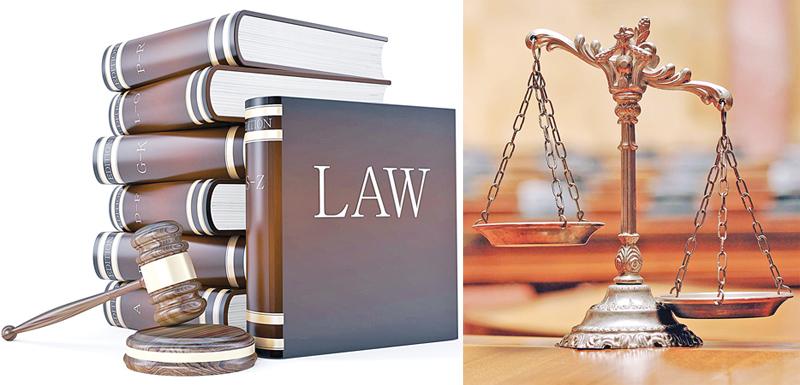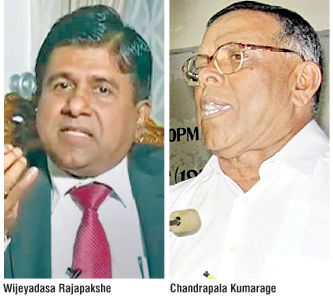
It was at the beginning of this year that Minister of Justice, Wijeyadasa Rajapakshe tabled the proposal to amend the Criminal Procedure Code (CPC Act no 15 of 1979) before the Cabinet and green light given to go ahead with the necessary amendments. Ten months down the line we have come to a standstill as the amendments have attracted criticism almost from all corners, including stakeholders pertaining to the matter. The intention of bringing about amendments was mainly attributed to the archaic nature of the laws in Sri Lanka’s legal system and to concentrate on certain lacunas in the law. The Minister, speaking on the matter said, the main objective of the amendments was to recognize the right of any person arrested, to consult an Attorney immediately after the recording of his first statement with the Police. Moving further, it provides, where a person lacks the means to obtain the services of a lawyer, such facility will be provided to him via the legal aid commission.
 The Bar Association of Sri Lanka (BASL) as well as the Human Rights Commission (HRC) immediately voiced their concern, criticizing that the amendment is in breach of human rights upheld by the state and hence should be retracted.
The Bar Association of Sri Lanka (BASL) as well as the Human Rights Commission (HRC) immediately voiced their concern, criticizing that the amendment is in breach of human rights upheld by the state and hence should be retracted.
The Law and Society Trust (LST) issuing a statement, professing grave concern over the amendments called on the government to withdraw the proposed amendments.
“A person’s fundamental right to a fair trial, central to which is early and prompt access to legal counsel, begins at the very outset of an investigation. Depriving an arrested person or detainee of access to a lawyer at this stage will compromise this right recognised unequivocally by domestic and international law. The right to a fair trial under Article 14 of the International Covenant on Civil and Political Rights, to which Sri Lanka is a party, sets out many minimum guarantees including the right of an accused person to access legal counsel at all stages of a criminal investigation and trial,” the LST statement read.
Speaking to the Sunday Observer Minister Rajapakshe still holding ground says it is a step to ensure the rights and not a means to deprive them.
The Minister ascribes the criticism to be a fault of the media as well. “The criticism is mainly because the media has not understood it properly. The media has distorted it in its reporting.”
Elucidating on the roots of the law the Minister said, even though under the current practice lawyers represent their clients at the police station, it has not been statutorily provided for.
“As it stands, the law doesn’t recognize the lawyers’ right to have access to suspects in police custody. Conventionally, some officers in charge of certain police stations permitted lawyers to have access, while some didn’t allow it at all. There was an incident where a lawyer was ridiculed at a police station, and he filed an FR case.”
At this juncture it was felt there was a need to make provisions for lawyers to assist their clients at police stations. It was at the time the Minister himself was holding office as President of Bar Association, that discussions were held in 2012, with all stakeholders and law enforcement officers, resulting from which a consensus was reached and a police circular issued under the Police Ordinance.
Consequently, a circular was issued on Government notification under Section 55 of the Police Ordinance (Chapter 53), providing:
(1) Every Attorney-at-Law, who enters the precincts of a police station established under the Police Ordinance (Chapter 53) situated in any part of Sri Lanka, in his capacity as an Attorney-at-Law for the purpose of representing and watching the interests of a person who is the client of such Attorney-at-Law, shall be treated cordially and courteously and given a fair and patient hearing by the police officers attached to such Police Station, whatever their rank.
(2) Every police officer attached to a Police Station, shall not at any time during which he is dealing with an Attorney-at-Law present in such police station for the purpose of representing and watching the interests of a person who is his client, use physical force on the person of such Attorney-at-Law or resort to the use of abusive language or any other form of intimidatory conduct…”
Speaking to the Sunday Observer senior counsel Chandrapala Kumarage, Attorney at Law said, the amendment is a great travesty of justice. And also will result in the ill treatment and torture of suspects taken into custody.
“Comparing the recently introduced Witnesses and Victims Protection Act victims and witnesses have been given all kinds of protection. What about the rights of the suspect?” he questioned.
The Minister further explained, the proposed amendments were a result of vast discussions with many personnel and authorities involved and is what finally, the relevant stakeholder including the Attorney General agreed to. This was mainly because there is a rising concern about the rights of victims.
“If there is an innocent man, what is wrong in allowing him access to lawyers after making the statement. If that’s the case they can very well state in the statement of their innocence.”
The current law provides that a statement/ confession made by a suspect to the police is not admitted as conclusive by the Magistrate once the case is initiated. Then the question arises whether the introduction of this law will in fact have a damaging impact.
Attorney at law Chandrapala Kumarage in reply to this states, even if a statement is recorded at the police station, it is not admissible under the Criminal Procedure Code. If a recovery is made i.e.- alleged weapon, it is called a discovery under the Evidence Ordinance and based on this, part of the statement of evidence can be further led. “There are instances where police produces recoveries and it may not even be correlated to the act of crime. And they get statements by force connecting the suspect to the incident and the item recovered,”he said.
Under the Public Security Ordinance and the Prevention of Terrorism Act a confessional statement made to an officer not below the rank of an Assistant Superintendent of Police (ASP) can be used as evidence in a court of law. Normally, a confession made to a Magistrate is admissible as evidence. The burden of proof is then shifted to the accused to prove that the confession he made was not made voluntarily. Hence, in the long run grave injustice will be caused to the suspect.
“Even the legal profession is divided on this issue,” said Minister Rajapakshe.
However, no decision has been arrived at, yet. According to the Minister discussions had been conducted with all stakeholders prior to introducing the Bill. Consequently, there have been a change in stance resulting in further dialogue on the matter.
According to senior counsel Chandrapala Kumarage all these issues can be addressed if the domestic laws were amended and implemented in line with the international covenants and treaties that Sri Lanka has ratified.
